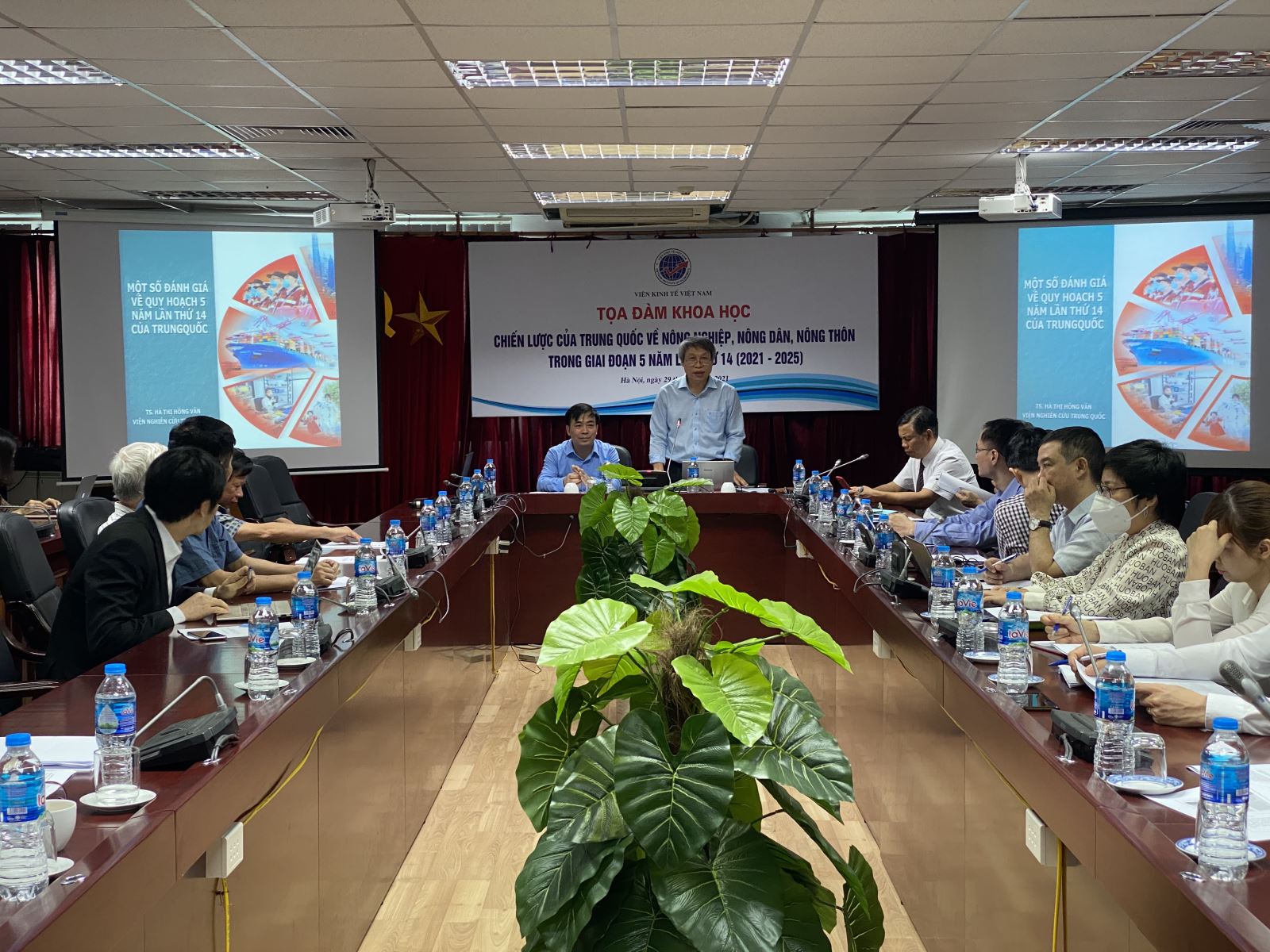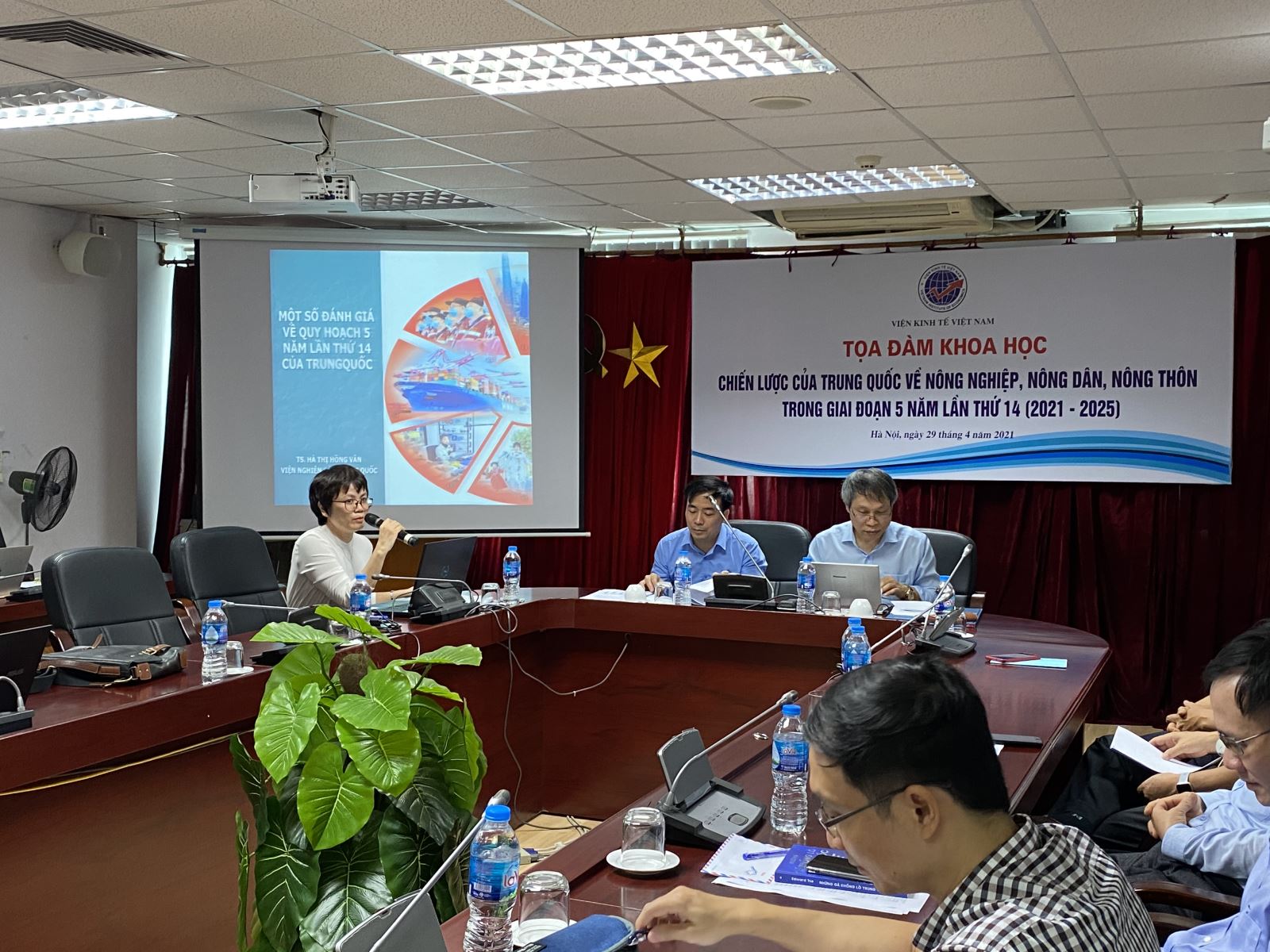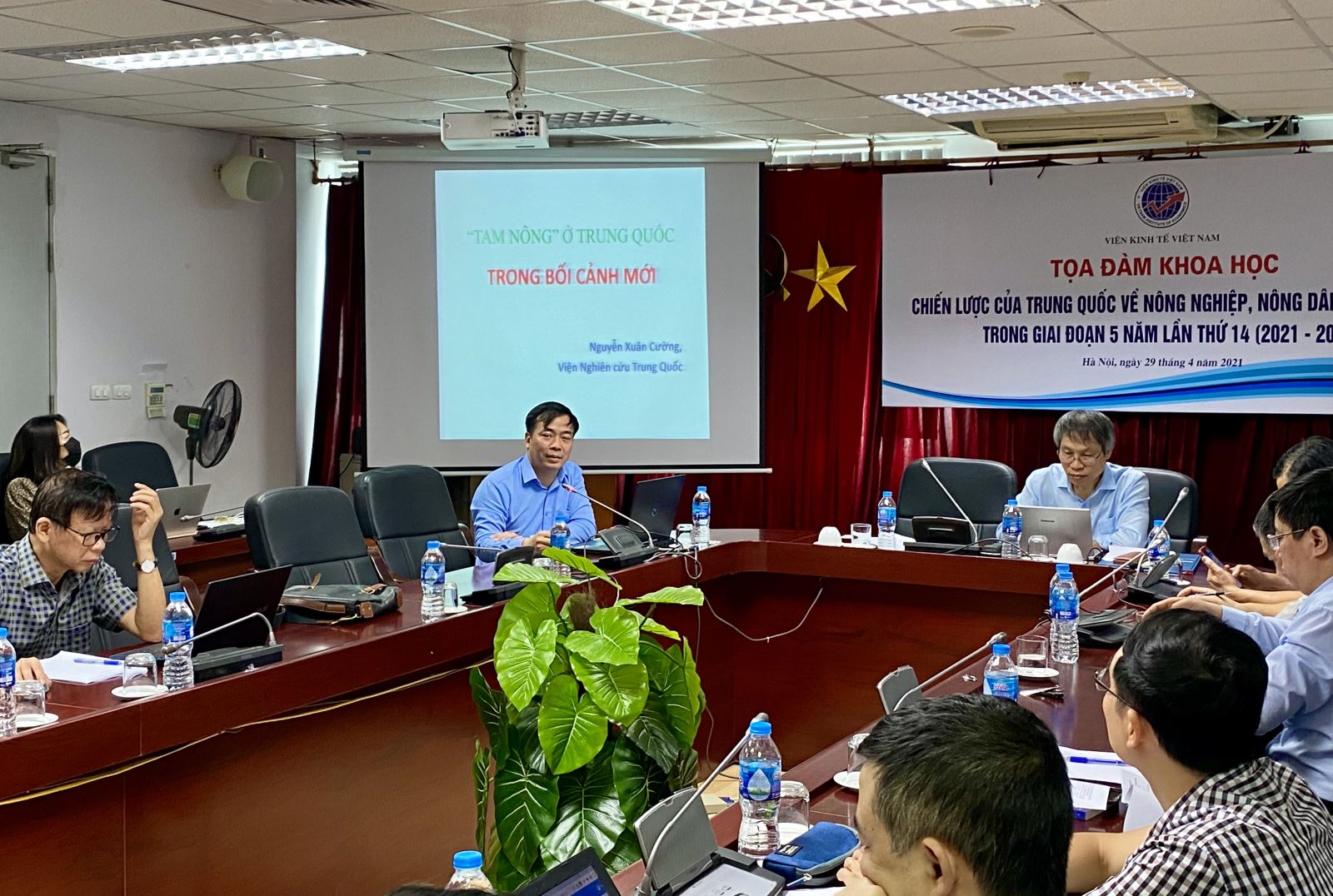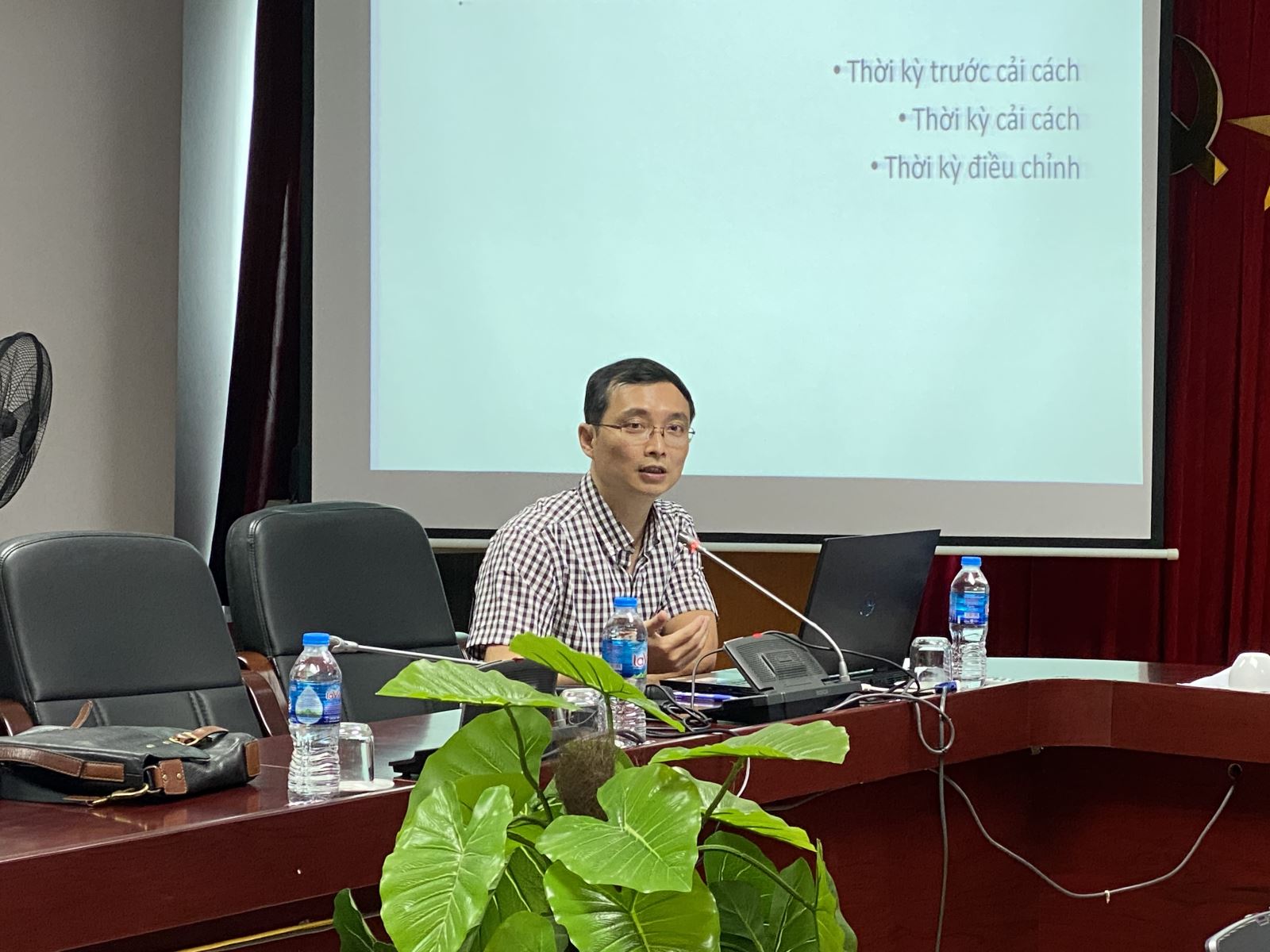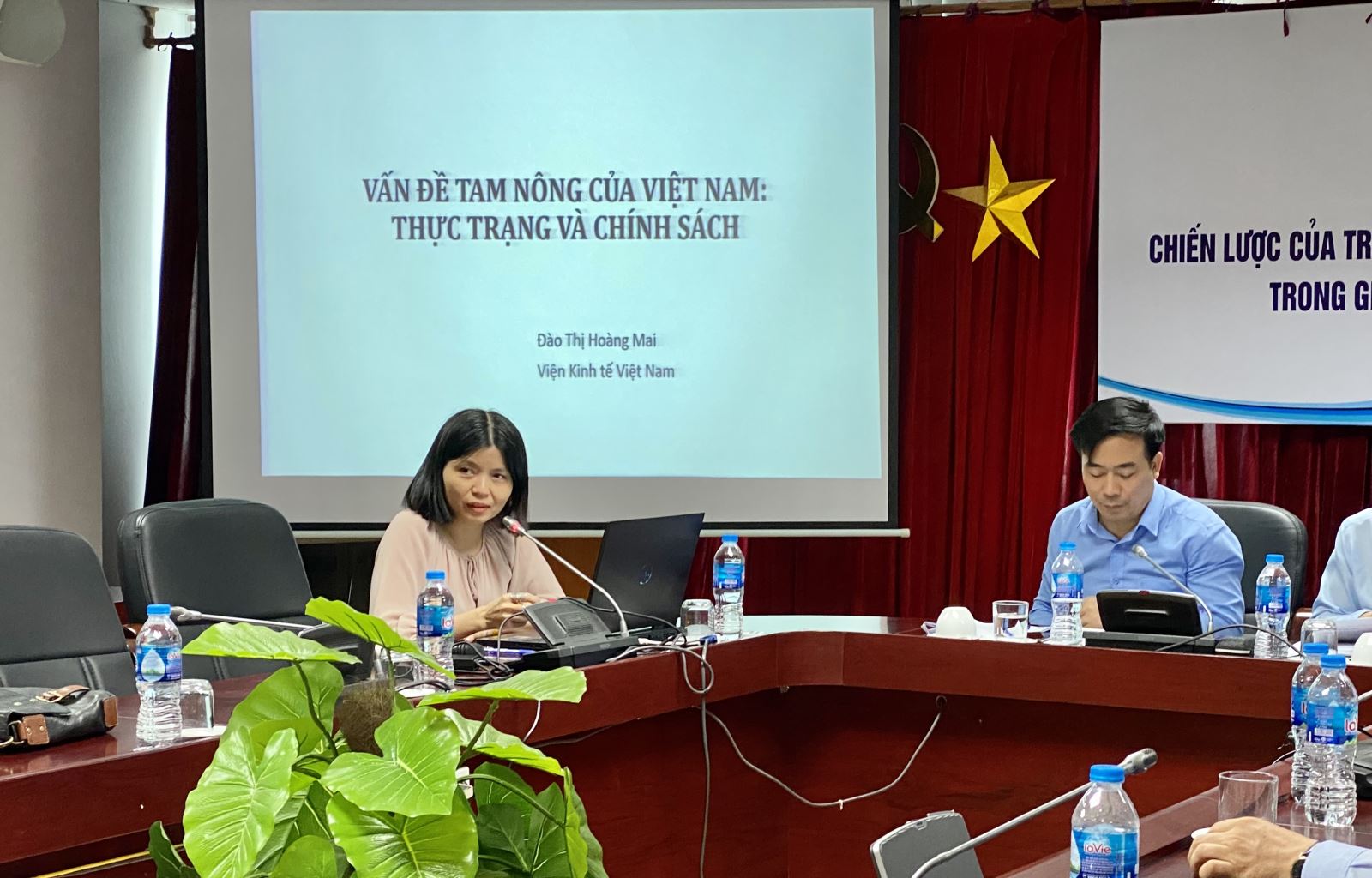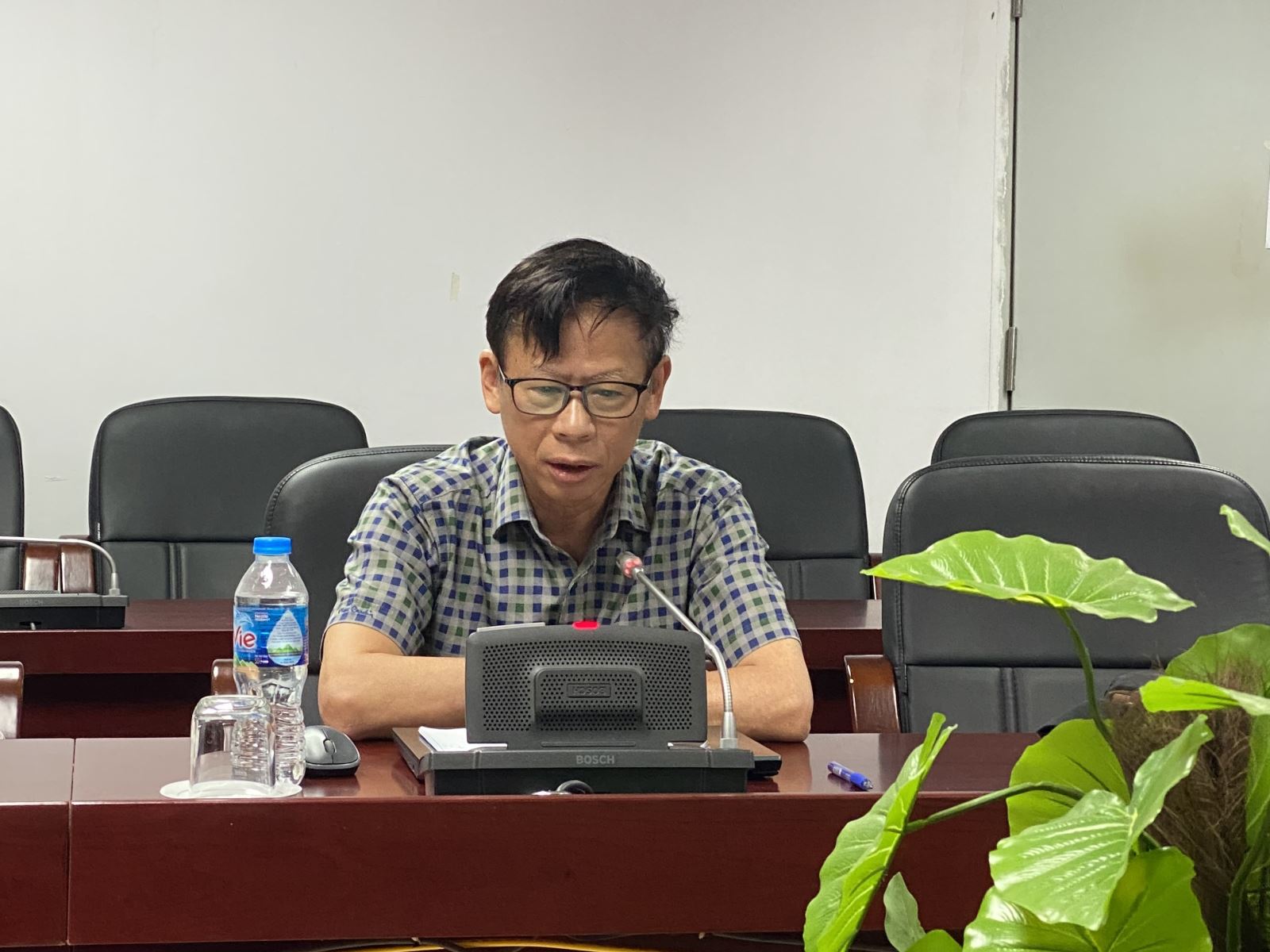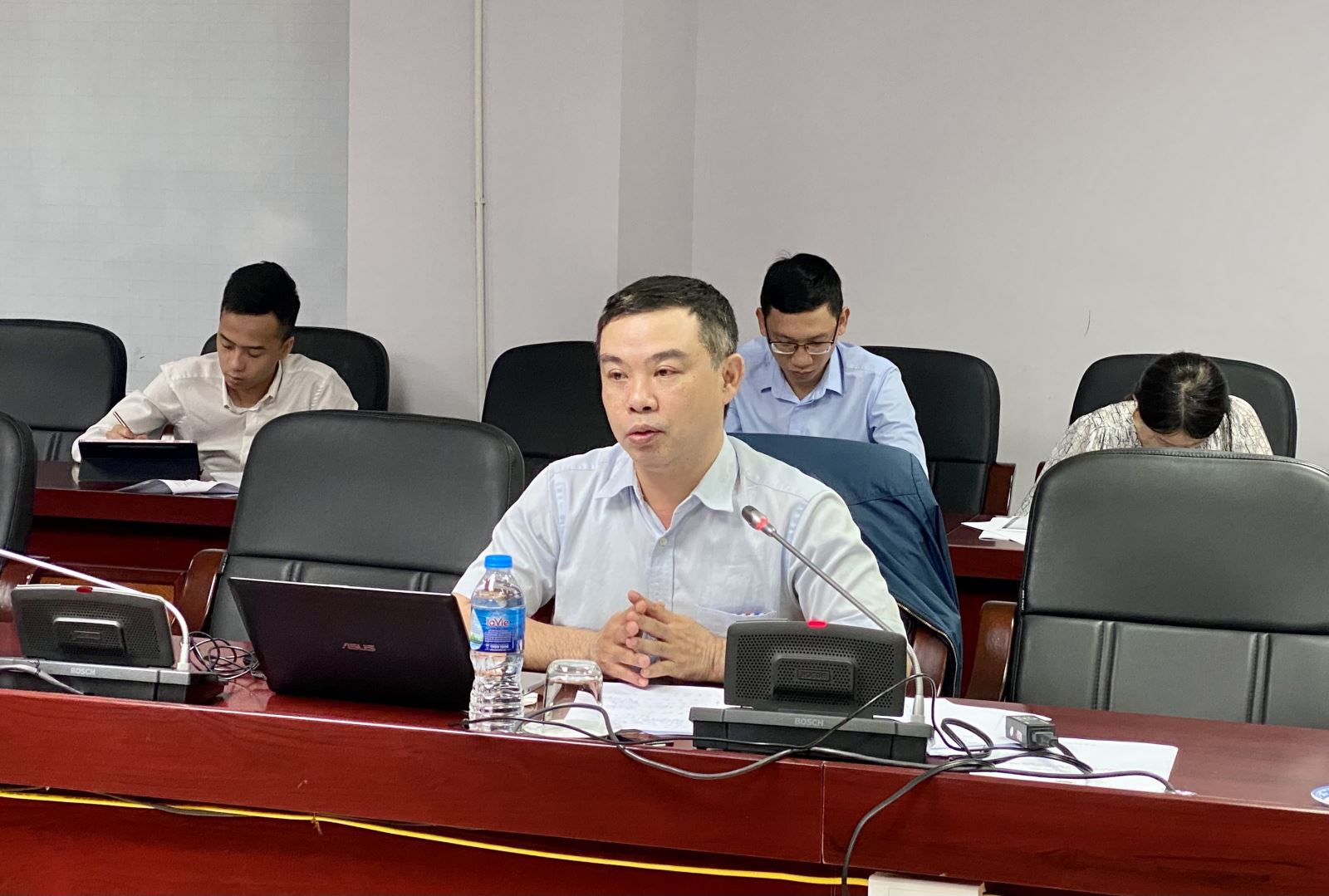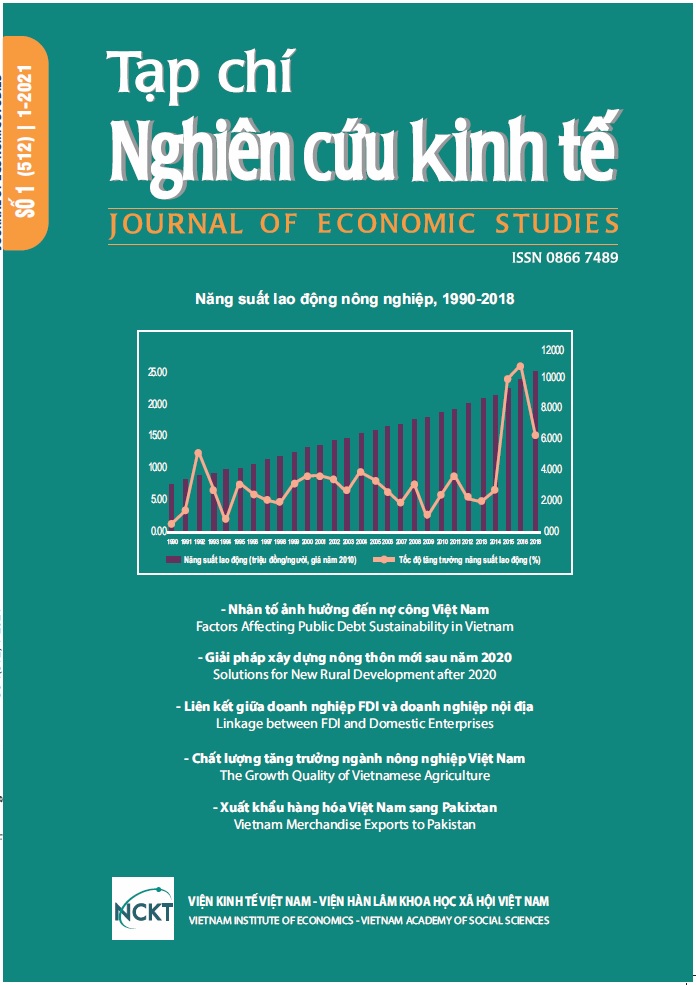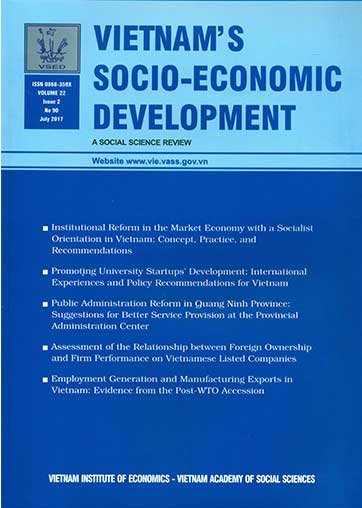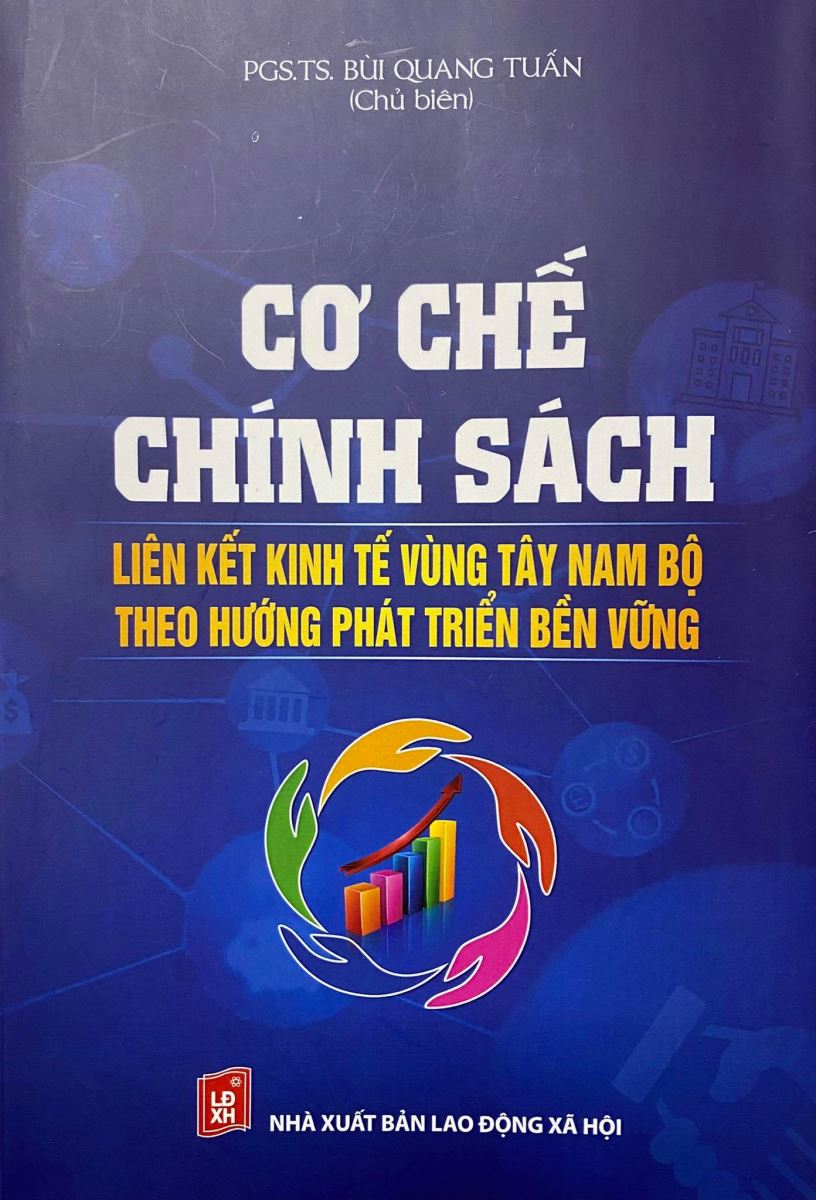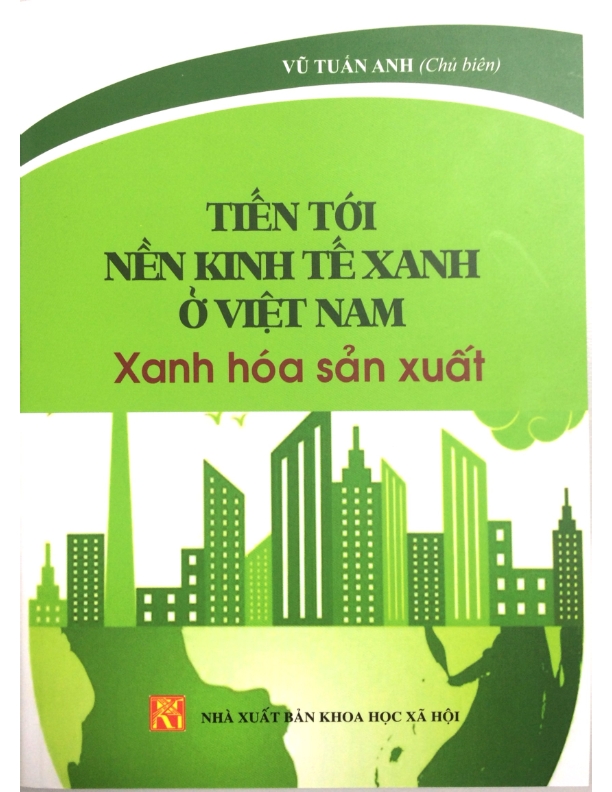SCIENTIFIC DISCUSSION "CHINA'S STRATEGY ON AGRICULTURE, FARMERS, RURAL IN THE 14th Five-Year Period (2021 - 2025)"
9/5/2022 5:45:30 PM
On the morning of April 29, 2021, at the Hall of the Vietnam Institute of Economics, a scientific discussion was held with the theme "China's strategy on agriculture, farmers and rural areas in the 14th five-year period for the 14th time. (2021 – 2025)”. Co-chair of the seminar is Assoc.Prof.Dr. Bui Quang Tuan - Director of the Vietnam Institute of Economics and Dr. Nguyen Xuan Cuong - Director of the Institute of Chinese Studies.
The discussion also had the participation of Dr. Ha Thi Hong Van - Head of the Department of Socio-Economic Research of China (Institute of China), Dr. Nguyen Binh Giang - Deputy Editor-in-Chief of Economic Research Journal, Dr. Dao Thi Hoang Mai – Head of Rural Economics Department (Vietnam Institute of Economics), Dr. Tran Cong Thang - Director of the Institute of Policy and Strategy for Agriculture and Rural Development, Dr. Dang Kim Son - Former Director of the Institute of Policy and Strategy for Agriculture and Rural Development, Dr. Hoang The Anh – Editor-in-Chief of the Journal of Chinese Studies, Dr. Vu Tuan Anh - Former Director of the Vietnam Institute of Economics. In addition, the seminar also had the presence of scientists from specialized research institutes and staff of the Vietnam Institute of Economics.
Overview of the talk
Speaking at the opening ceremony, Assoc.Prof.Dr. Bui Quang Tuan affirmed that the purpose of the Seminar was to share views, information and research issues on China's economic plan and China's "three agricultural" plan for the 2021-2025 period, as well as study and apply China's strategies to Vietnam.
Opening the discussion, Dr. Ha Thi Hong Van presented the presentation "The 14th Five-Year Plan of China". The presentation provided some background information on the current Chinese context, information on the 14th master plan, and an assessment of basic information on the 14th 5-year plan and economic development. Chinese society until 2035. According to Dr. Ha Thi Hong Van's 14th plan has 5 new points compared to China's previous plan: (i) No economic growth target; (ii) Focus on “Dual Cycle Strategy”; (iii) Promoting digital; (iv) Ensuring food security; (v) There is a separate chapter on strengthening planning implementation. According to the speaker, Vietnam is having investment and trade opportunities when China implements policies, but there are also many challenges to achieve this opportunity. Therefore, Vietnam needs to make appropriate adjustments so as not to be affected by China's development plans.
Dr. Ha Thi Hong Van, Head of the Department of Socio-Economic Research of China, Institute of Chinese Studies
Followed by a presentation on "Three Nongs in China in a New Context" by Dr. Nguyen Xuan Cuong. The presentation focuses on analyzing China's vision, strategy and tactics with the issue of "three shallows" in the new context. China has implemented the "three nongs" by solving the problems of agriculture, rural areas and farmers in turn with the goal of shifting the focus: agriculture - strong, rural - beautiful, farmer - rich. In particular, the 14th master plan has a separate chapter on "three nongs", specifically on digital rural development. China also emphasized on the issue of comprehensive rural revitalization when linking agriculture with industry and services; linking rural areas with urban areas and associated with "dual circulation".
Dr. Nguyen Xuan Cuong, Director of the Institute of Chinese Studies
At the end of Session 1 with the presentations of 2 speakers, the panel moved to a discussion session. According to Dr. Vu Tuan Anh needs to identify the main subject of China's rural "picture" on the basis of which Vietnam can consider and learn China's strategies and policies on "three noes".
Dr. Vu Quoc Huy said that Vietnam hopes to learn strategy from China, but the implementation is very difficult because the context and resources of Vietnam and China have a big difference, and raises the question of whether it is really possible. whether or not China has raised the issue and solved the problems of the "three nos" sequentially.
In addition to the comments of experts, some scientists also posed a number of questions to the speakers, such as the question about digital countryside, about "dual circulation".
At the beginning of Session 2 of the talk, Dr. Nguyen Binh Giang presented a presentation on "The Three Nong Policy of China and Vietnam from a Comparative Perspective". The point throughout the discussion is to compare the implementation of Vietnam's "three agricultural" policy with China through the pre-reform, reform and adjustment periods. Thereby, the speaker showed that the negative problems in the "three nos" in China and Vietnam in the pre-reform period and the reform period were unexpected problems. This is a consequence of voluntarism and dogmatism... Therefore, it is necessary to have strategies to prevent unexpected problems during the adjustment period.
Dr. Nguyen Binh Giang, Deputy Editor-in-Chief of Economic Research Journal
Continuing the program of the talk show, Dr. Dao Thi Hoang Mai presented the lecture "Vietnam's Three Farms: Situation and Policy". Presents the current situation and introduces policies on agriculture, rural areas and farmers in Vietnam up to the present time. From there, it is concluded that although agriculture, rural areas and farmers are three different issues, it is necessary to approach and develop these issues in a synchronous and sustainable manner because agriculture is mainly related to the economy. , while rural areas and farmers are more involved in the social and environmental spheres.
Dr. Dao Thi Hoang Mai, Head of the Department of Rural Economics, Vietnam Institute of Economics
The discussion moves to the discussion part.
Dr. Dang Kim Son emphasized that Vietnam should selectively study China's "three agricultural" strategies when China is a large country with a more developed level than Vietnam. At that time, it will not disturb the rural structure as well as overload the urban area.
Dr. Dang Kim Son gives suggestions for the discussion
Dr. Hoang The Anh offers four approaches from a holistic perspective: (i) A strategic/tactical perspective; (ii) The interests of central and local governments, enterprises and farmers; (iii) Industry; (iv) Politics of the ruling party and the individual leader to solve the problem of "three peasants" in China as well as in Vietnam.
Dr. Hoang The Anh gave suggestions for the discussion
Dr. Dang Thi Phuong Hoa also contributed some ideas to the seminar, approaching from the perspective of Russian researchers on the issue of China's "three peasants" in the current context. First, the promotion of large-scale rural revitalization and improvement of the new urbanization strategy. Second, grant urban permanent residence to people from rural areas. Third, China focuses on investing in technology with a big data strategy to revive rural communities.
The scientific discussion ended successfully and left many impressions for the participants.
Other news
- National Conference on Developing Vietnam’s Green Financial Market: Challenges, Urgent Issues, and Breakthrough Solutions (3/28/2025 1:47:48 PM)
- Scientific Forum on “Implementing a Circular Economy in Vietnam Under New Conditions” (3/28/2025 1:46:59 PM)
- Scientific Conference on “Ha Tinh's Green Transformation and Growth for Sustainable, Prosperous, and Secure Development in the New Context” (3/28/2025 1:46:24 PM)
- Scientific Conference on “Promoting Green Energy Development: Current Status and Solutions” (3/28/2025 1:45:31 PM)
- Scientific Conference on “The Relationship Between Globalization and the World Order to 2030, with a Vision to 2045” (3/28/2025 1:44:54 PM)
- Scientific Conference: “Vietnam’s Energy Transition: Shaping the Green Economy Trend” (3/28/2025 1:44:02 PM)
- Scientific Conference: “Building and Protecting Vietnamese Brands in Global Economic Integration” (3/28/2025 1:43:20 PM)
- Scientific Conference: “Vietnam’s Energy Transition: Shaping a Green Future” (3/28/2025 1:42:23 PM)
- International conference "Vietnam-Laos Friendship Relations: Promoting bilateral cooperation, sharing experiences in stabilizing the macroeconomy and restoring growth" (3/28/2025 1:34:07 PM)
.jpg)
